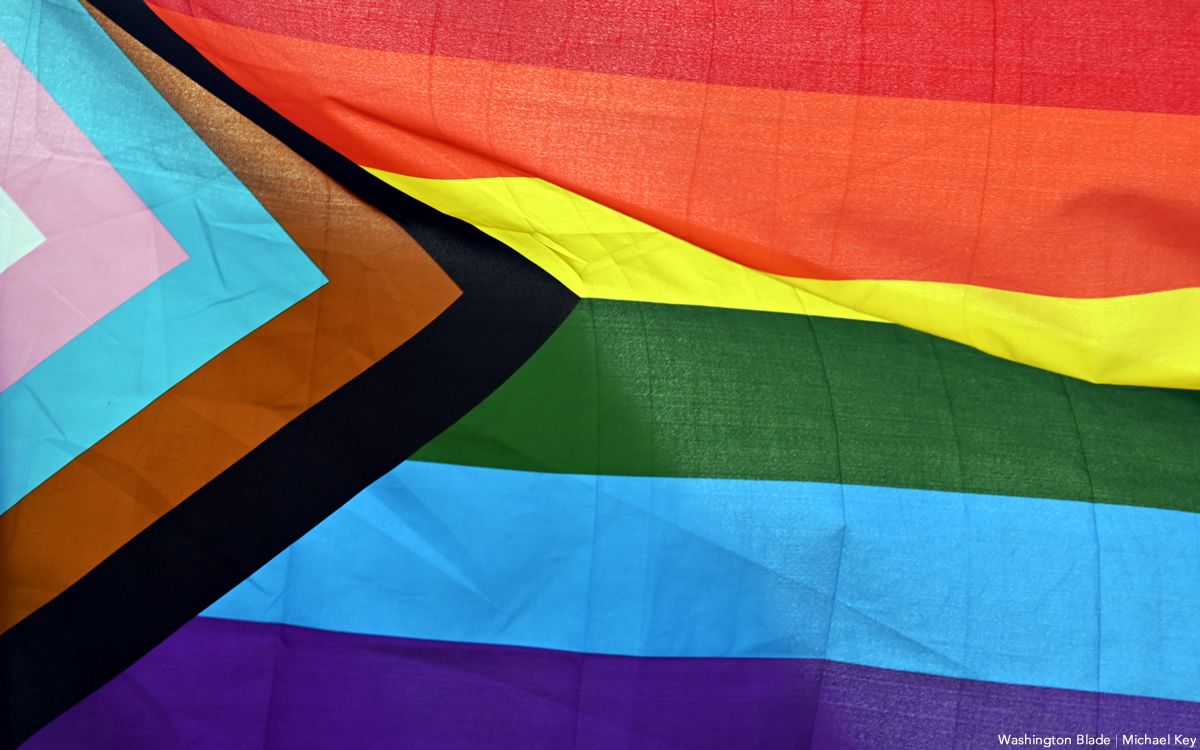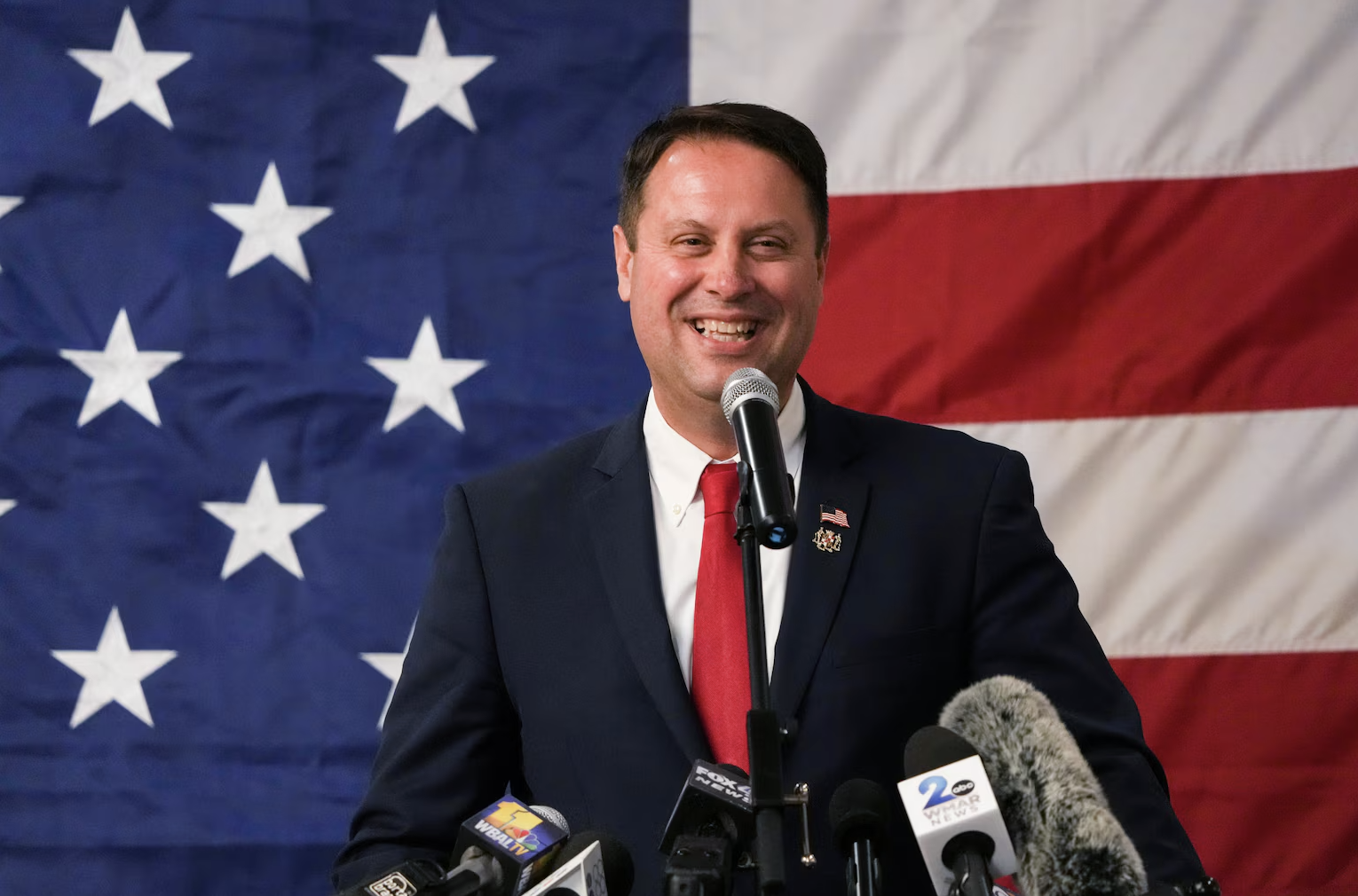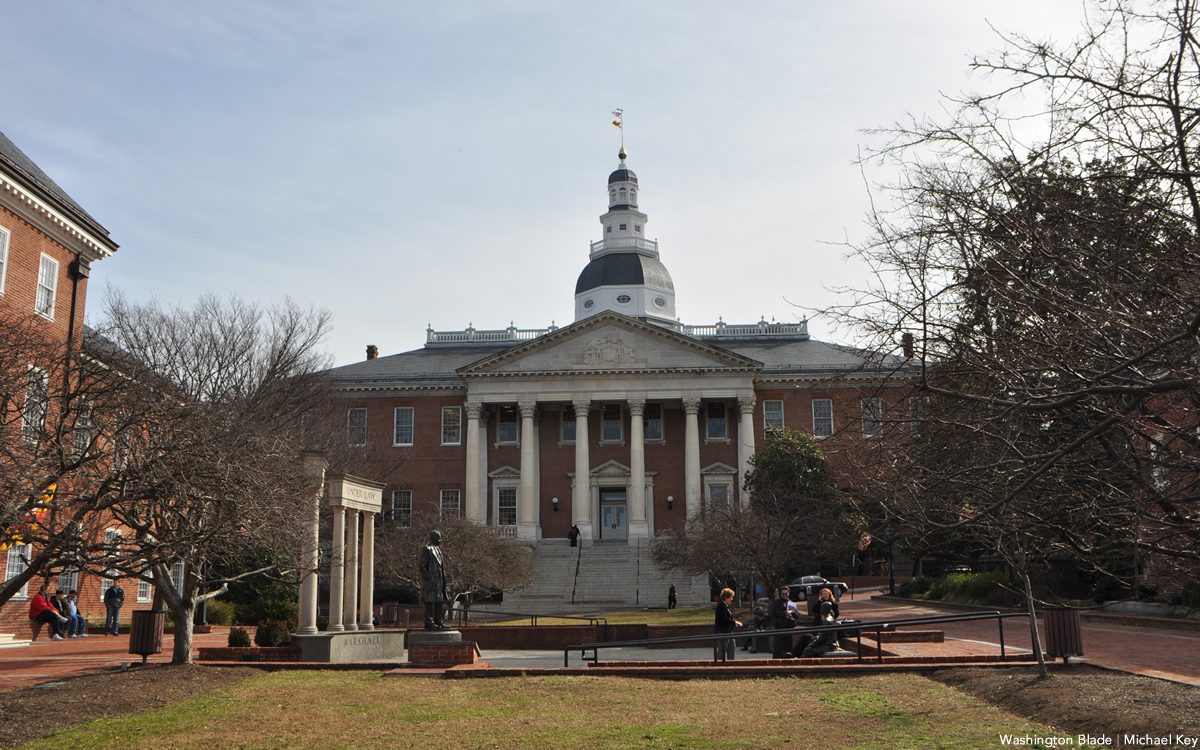Maryland
Upper Chesapeake Bay Pride Festival returns to Havre de Grace
‘There are thriving queer communities in rural areas’

Concord Point Park in Havre de Grace, Md., will transform into the site of the 6th annual Upper Chesapeake Bay Pride Festival on Saturday, Oct. 5. The free, family-friendly festival will run from 2-6 p.m. and feature live music, drag performances, and vendors.
About 3,500 people are expected to attend the festival, which is organized by the Upper Chesapeake Bay Pride Foundation and will be held at the Chesapeake waterfront. More than 120 artists, vendors, and community organizations will have booths, and a kids’ area will offer activities such as face painting, magician performances, and storytelling.
Along with drag performances, musical acts will perform throughout the day, spanning genres such as R&B, punk, and queer country. The foundation’s president, Kurt Doan, highlighted Ryan Cassata as a key headliner.
“Ryan is a trans activist but also makes really vibrant music, so I’m excited to bring that kind of music to Harford County,” Doan said.
Festival goers will be able to choose from a variety of food options, including empanadas, Thai food, burgers, French-style desserts and ice cream. This year, the foundation is extending activities beyond the festival hours, including an after party and happy hour at one of the local breweries, and Sunday yoga session.
“We’ve got lots of really super supportive queer-friendly businesses in Havre De Grace that are going to be offering different things,” Doan said.
The inaugural Upper Chesapeake Bay Pride Festival was held in 2019 to celebrate the local LGBTQ community in the rural Harford and Cecil counties. Since then, the foundation has grown in its scope: In addition to hosting the annual festival, it provides scholarships to local colleges and hosts monthly social activities.
Doan emphasized the role the foundation plays in supporting the rural queer community, noting its impact in creating belonging and visibility.
“I think people can very easily forget that queer people also live in rural areas, and when we talk about being queer in Maryland, it’s often about what’s going on in the outskirts of D.C. or in Baltimore or in Annapolis. But there are thriving queer communities in rural areas, we just don’t often have brick and mortar spots where we can gather,” he said. “I think it’s super important to have an organization like this.”
To support the festival or learn how to become an exhibitor, volunteer, or performer, visit ucbpride.com/2024-pride-festival/.
Maryland
4th Circuit dismisses lawsuit against Montgomery County schools’ pronoun policy
Substitute teacher Kimberly Polk challenged regulation in 2024

A federal appeals court has ruled Montgomery County Public Schools did not violate a substitute teacher’s constitutional rights when it required her to use students’ preferred pronouns in the classroom.
The 4th U.S. Circuit Court of Appeals in a 2-1 decision it released on Jan. 28 ruled against Kimberly Polk.
The policy states that “all students have the right to be referred to by their identified name and/or pronoun.”
“School staff members should address students by the name and pronoun corresponding to the gender identity that is consistently asserted at school,” it reads. “Students are not required to change their permanent student records as described in the next section (e.g., obtain a court-ordered name and/or new birth certificate) as a prerequisite to being addressed by the name and pronoun that corresponds to their identified name. To the extent possible, and consistent with these guidelines, school personnel will make efforts to maintain the confidentiality of the student’s transgender status.”
The Washington Post reported Polk, who became a substitute teacher in Montgomery County in 2021, in November 2022 requested a “religious accommodation, claiming that the policy went against her ‘sincerely held religious beliefs,’ which are ‘based on her understanding of her Christian religion and the Holy Bible.’”
U.S. District Judge Deborah Boardman in January 2025 dismissed Polk’s lawsuit that she filed in federal court in Beltsville. Polk appealed the decision to the 4th Circuit.

By PAMELA WOOD | Dan Cox, a Republican who was resoundingly defeated by Democratic Gov. Wes Moore four years ago, has filed to run for governor again this year.
Cox’s candidacy was posted on the Maryland elections board website Friday; he did not immediately respond to an interview request.
Cox listed Rob Krop as his running mate for lieutenant governor.
The rest of this article can be found on the Baltimore Banner’s website.
Maryland
Expanded PrEP access among FreeState Justice’s 2026 legislative priorities
Maryland General Assembly opened on Jan. 14

FreeState Justice this week spoke with the Washington Blade about their priorities during this year’s legislative session in Annapolis that began on Jan. 14.
Ronnie L. Taylor, the group’s community director, on Wednesday said the organization continues to fight against discrimination against people with HIV/AIDS. FreeState Justice is specifically championing a bill in the General Assembly that would expand access to PrEP in Maryland.
Taylor said FreeState Justice is working with state Del. Ashanti Martinez (D-Prince George’s County) and state Sen. Clarence Lam (D-Arundel and Howard Counties) on a bill that would expand the “scope of practice for pharmacists in Maryland to distribute PrEP.” The measure does not have a title or a number, but FreeState Justice expects it will have both in the coming weeks.
FreeState Justice has long been involved in the fight to end the criminalization of HIV in the state.
Governor Wes Moore last year signed House Bill 39, which decriminalized HIV in Maryland.
The bill — the Carlton R. Smith Jr. HIV Modernization Act — is named after Carlton Smith, a long-time LGBTQ activist known as the “mayor” of Baltimore’s Mount Vernon neighborhood who died in 2024. FreeState Justice said Marylanders prosecuted under Maryland Health-General Code § 18-601.1 have already seen their convictions expunged.
Taylor said FreeState Justice will continue to “oppose anti anti-LGBTQ legislation” in the General Assembly. Their website later this week will publish a bill tracker.
The General Assembly’s legislative session is expected to end on April 13.



















